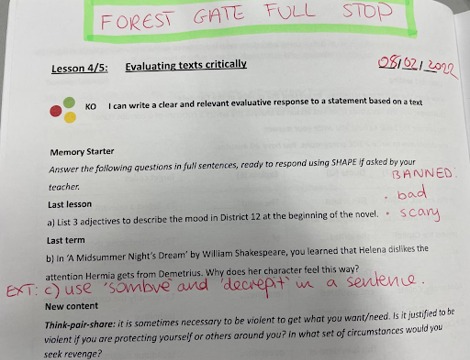Intellectual Prep
Intellectual Preparation Phase 2
What
- Intellectual preparation means setting yourself up for success in delivering your planned lesson.
- It is different from planning because a plan is the lesson structure/outline/slides/booklet notes.
- Intellectual preparation is the HOW and WHY behind all of that.
Why
- Shared/centralised lessons allows teachers to refocus time on the execution (the how)
- Centralised lessons are not personalised - our students deserve that personalisation
- Differentiation in delivery cannot be done successfully off the cuff. If we have intellectually prepared for it, we reduce our cognitive load during the lesson.
Success Criteria
SUCCESS CRITERIA FOR INTELLECTUAL PREPARATION IN PHASE 2
- Plan to tackle a common misconception head on
- Script explanation to ensure it is bitesized, precise & concise
- Identify the students you will target the questions to according to their needs
- Strategically plan in CFU points
- Use exemplar response you intend to use later to set your class up to succeed in this phase
High Frequency Errors are the inverse of this success criteria!
What A Good One Looks Like

- Planned to tackle a common error head on
- Adapted to needs of that class with ‘banned words’
- Provided a challenge task she knows they will need
Click the links below to see more subject specific examples of intellectual preparation!
Marzan Ahmed's intellectual preparation in practice
Key takeaways
- If we fail to ‘prepare’, we prepare our students to fail: intellectual preparation is essential for our students’ success. Make time to do this for every lesson.
- PLAN in your CFU questions and deliberately target your SAFs before the lesson.
Take the quiz to complete module 17!
Intellectual preparation 2 - if we fail to plain, we plan to fail
Key reading
- Technique 1, pg 45, Exemplar Planning, Teach Like A Champion 3.0 by Doug Lemov
- Intellectual preparation: our second-order thinking